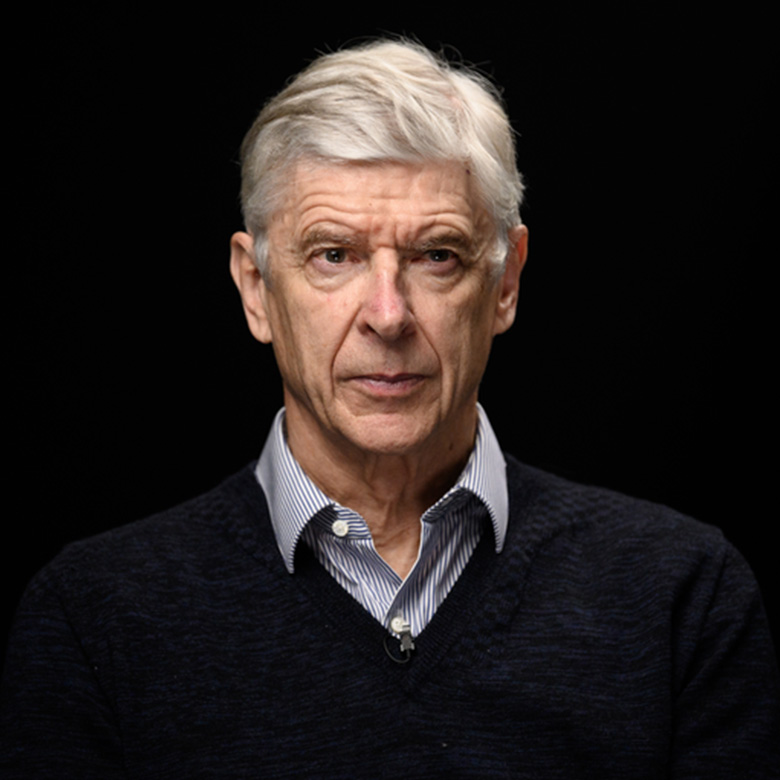Head of Global Football Development, FIFA

Arsène Wenger managed Arsenal for a record 22 years. In an era where Premier League managers rarely last much beyond a few seasons, Arsène’s tenure was exceptional in top-flight football.
Under Arsène, Arsenal became one of only three sides ever to achieve the Premier League and FA Cup double, a feat they accomplished twice. They won three league titles and seven FA Cups in total under Arsène’s leadership making them one of the most successful English teams in the modern era.
After seven years in charge at Monaco and a season in Japan at Grampus Eight, Arsène took over at Highbury in an era when English football was still dominated by a culture largely unchanged since the start of the professional era. Nicked named ‘Le Professeur’ Arsène was instrumental in professionalising the English game, introducing new coaching methods, tactical analysis and high performance practices that would later become commonplace. From nutrition to psychology, Arsenal pioneered behind the scenes in order to yield better results and performances on the pitch.
The first decade of Arsène’s time at the club was defined by a fierce rivalry with Manchester United as the two teams battled for dominance of the Premier League. Perhaps Arsène’s most famous achievement was the so-called Invincibles; an Arsenal team featuring the likes of Patrick Viera, Robert Pires, Dennis Bergkamp and Thierry Henry that went on an unprecedented season-long unbeaten run of games to retain the Premier League title.
During Arsène’s time at the club Arsenal became one of the most successful clubs in English league history. They also became known for a commitment to an attractive, passing form of play, sometimes to the point of being criticised for placing too much emphasis on style. On leaving the club Arsène had overseen huge changes both on and off the pitch. The club had moved from their historic Highbury ground to the state-of-the-art Emirates Stadium, a move that saw him forced to balance the club’s financial priorities with more obvious goals. Whilst many other teams spent on vastly inflated player fees and wages, he was determined to build teams that focused more on developing young and overlooked talent. He left a legacy of professionalism, cultured play, and analytical performance methods that changed the game, and a management record few will ever equal.
Dubai International Project Management Forum. All rights reserved ©2024.
Content loading ...
Please wait for a moment